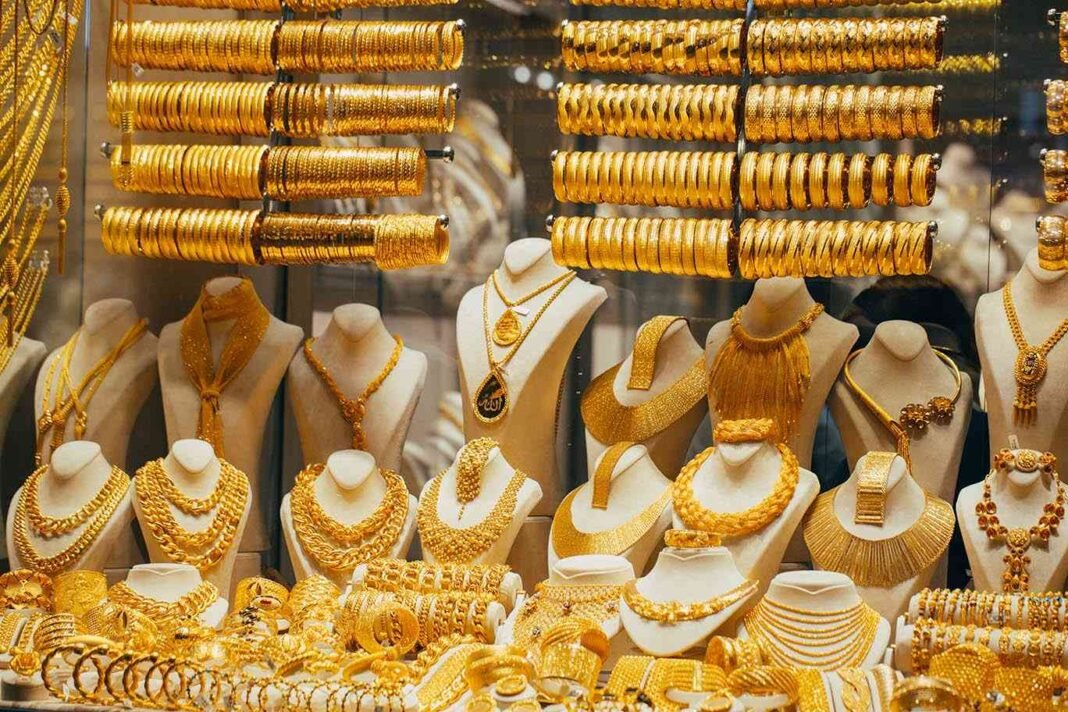Gold prices drop in Iraq remains the key trend across major markets, with noticeable decreases recorded in both Baghdad and Erbil. The latest figures show a continuous decline in gold prices, reflecting shifts in both local and foreign demand. These changes have directly impacted traders and buyers alike.
In Baghdad’s well-known al-Nahr Street wholesale markets, the price of one mithqal (around 4.25 grams) of 21-carat foreign gold—including Gulf, Turkish, and European varieties—dropped to 657,000 Iraqi dinars. Just a day before, the same item sold for 670,000 dinars. Buyers now pay about 653,000 dinars for the same gold.
Meanwhile, 21-carat Iraqi gold in Baghdad saw a similar downward trend. It sold at 637,000 dinars per mithqal, while buyers offered 633,000 dinars. These drops are driving cautious behavior among both vendors and customers. Gold prices drop in Iraq has become a repeating concern for those watching market patterns.
At the retail level in Baghdad, small differences in price were noted across shops. Gulf-origin gold sold between 670,000 and 680,000 dinars per mithqal. On the other hand, Iraqi gold ranged from 640,000 to 650,000 dinars. Although the variation is small, it still matters for frequent gold buyers.
Moving north to Erbil, the capital of the Kurdistan Region, a similar trend appeared. The market recorded a selling price of 689,000 dinars for 22-carat gold. The popular 21-carat type sold for 658,000 dinars, while 18-carat gold was priced at 764,000 dinars. Despite the regional price difference, gold prices drop in Iraq affected both major cities in similar ways.
This pattern suggests a broader movement in the Iraqi gold market. Several factors might be contributing to this trend. Global gold rates, fluctuations in the dollar exchange rate, and changes in local economic activity all play a role. Traders in both cities are now re-evaluating their inventory and sales strategies.
As gold continues to shift in value, investors are closely watching market reactions. Many are choosing to wait before making purchases. Others are adjusting pricing based on daily fluctuations. The repeated observation that gold prices drop in Iraq underscores the uncertainty facing the market today.


